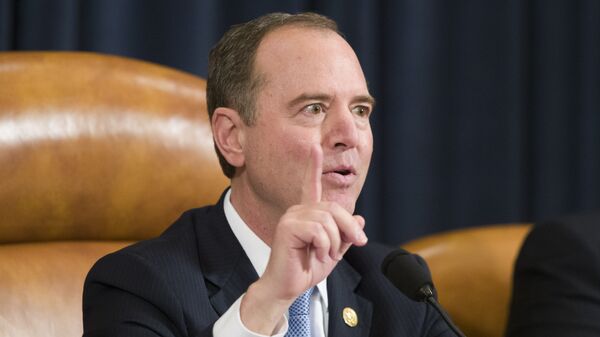The documents were released following requests by House Republicans, with release of the Russiagate documents having been previously approved by a 2018 vote, as well as redactions by the Office of the Director of National Intelligence.
"The transcripts released today richly detail evidence of the Trump campaign’s efforts to invite, make use of, and cover up Russia’s help in the 2016 presidential election," House Intelligence Committee chairperson Rep. Adam Schiff (D-CA) said in a Thursday news release accompanying the documents.
"These transcripts should have been released long before now, but the White House held up their release to the public by refusing to allow the Intelligence Community to make redactions on the basis of classified information, rather than White House political interests. Only now, and during a deadly pandemic, has the President released his hold on this damning information and evidence," Schiff continued.
"Like the Ukraine investigation that would follow it, the investigation into the Trump campaign’s effort to seek and utilize Russian help in 2016 and to obstruct justice, reveal a President who believes that he is above the law. But we are a country where the truth still matters and where right still matters. Our investigation into the Trump campaign, and the evidence we uncovered despite formidable obstruction, affirms that.”
Some of those whose committee interviews were released include former Trump adviser Steve Bannon; former Directors of National Intelligence James Clapper and Dan Coats; Trump personal lawyer Michael Cohen; former Trump campaign manager in 2015 and 2016 Corey Lewandowski; former Attorney General Loretta Lynch; former Counselor to the President John Podesta; Blackwater USA founder Eric Prince; former US Ambassadors to the United Nations Samantha Power and Susan Rice; former Trump adviser Roger Stone; Trump's eldest son and an executive vice president of the Trump Organization, Donald Trump Jr.; and numerous others. One name is redacted.
Former special counsel Robert Mueller's April 2019 report on the Russian collusion investigation found no evidence to support the accusation that Trump's 2016 election campaign colluded with the Russian government to win the election, but did claim to find evidence of Russian attempts to influence the election, such as through buying ads on social media. Russia has denied all accusations of attempted interference.
Trump was also accused of having solicited help from the Ukrainian government in the summer of 2019 by asking the administration of Ukrainian President Volodymyr Zelenskyy to open an investigation into former US Vice President Joe Biden, who has since become the presumptive Democratic Party nominee to challenge Trump in the November 2020 election. The probe would have investigated Biden and his son, Hunter Biden, and the latter's involvement with the Ukrainian gas company Burisma Holdings. The elder Biden pressured Kiev to end a probe into the company in 2016, while Hunter Biden sat on the company's board.
Trump was impeached in December 2019 for abuse of power as well as impeding the House of Representatives' investigation of this affair, and he was acquitted in the January 2020 trial of both charges by the Senate.


